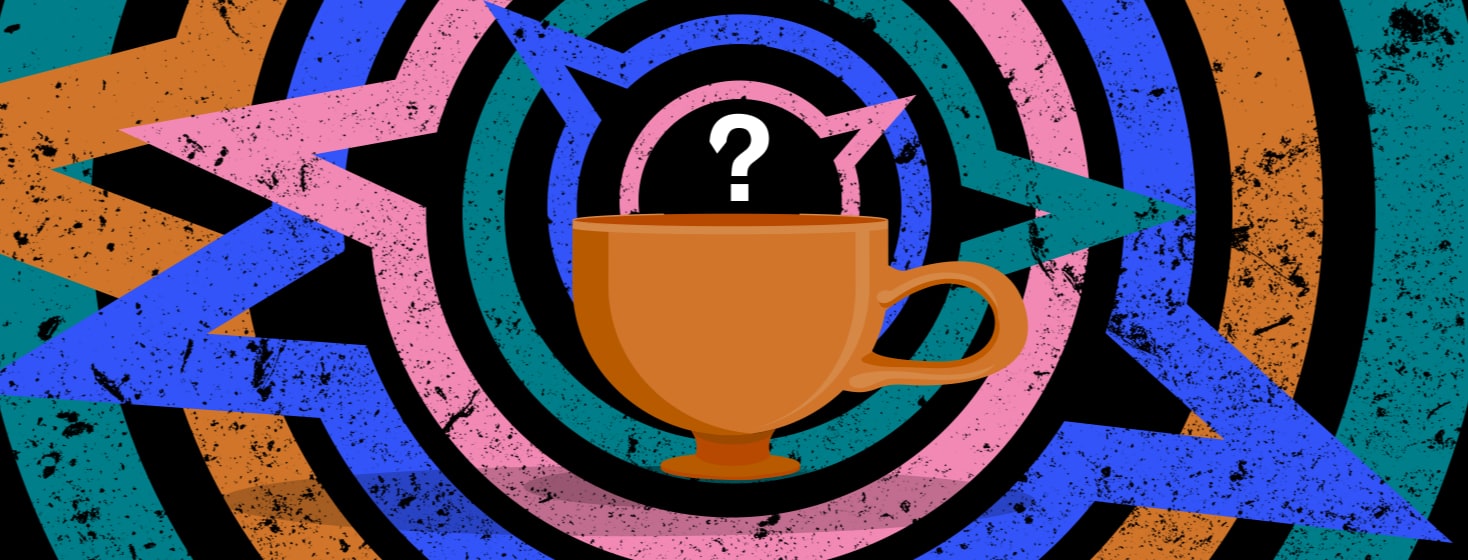Caffeine and Myasthenia Gravis
Reviewed by: HU Medical Review Board | Last reviewed: April 2024 | Last updated: February 2026
Myasthenia gravis (MG) is an autoimmune condition. This means it is caused by an overactive immune system. MG typically causes muscle weakness that worsens after activity. Many factors can make MG symptoms better or worse. One substance that can impact people with MG is caffeine.1,2
Can caffeine help people with MG?
People with MG have low levels of a chemical called acetylcholine. Acetylcholine is a type of chemical called a neurotransmitter. These chemicals help carry messages between nerves or from nerves to the body.2-4
Acetylcholine has many roles, including helping nerves to tell muscles to move. MG is often treated with a type of drug called a cholinesterase inhibitor. Cholinesterase inhibitors work by blocking an enzyme that breaks down acetylcholine. These drugs are also called acetylcholinesterase inhibitors.2-4
Caffeine can help increase acetylcholine levels. Research shows that it does not take much caffeine to yield this benefit. But the benefits of caffeine are more likely to decrease with long-term regular use.2-4
Can caffeine or coffee hurt people with MG?
Worldwide, coffee is usually the most common source of caffeine. People may also drink hot tea as a caffeine source. Unfortunately, hot beverages can be a trigger for people with MG. In this case, it is not the caffeine that may worsen MG but the temperature. If hot drinks are a trigger for you, consider drinking cold coffee or tea.1,2
Caffeine and coffee may have other negative effects that can impact people with MG. For example, coffee can impact the gastrointestinal (GI) system, causing discomfort or diarrhea for some people. Caffeine also can lead to side effects such as:2
- Anxiety
- High blood pressure
- Trouble sleeping
- Nausea
- Headaches
- Abnormal heartbeat
Also, while boosting acetylcholine levels can be helpful, having too much acetylcholine can cause problems. A cholinergic crisis is a toxic condition that can result from having too much acetylcholine. Just drinking coffee has not been shown to independently cause a cholinergic crisis, but coffee may worsen a cholinergic crisis. While cholinergic crises are uncommon, taking a cholinesterase inhibitor for MG increases the risk. The higher the dose you take, the higher your risk for a cholinergic crisis.4,5
Symptoms of a cholinergic crisis can include:4,5
- Blurry vision
- Trouble breathing
- Nausea, vomiting, or diarrhea
- Sweating too much
- Slow heart rate
A cholinergic crisis can be a life-threatening condition. If you think you could be having a cholinergic crisis, get medical attention as soon as possible.4,5
Other sources of acetylcholine
If you want to avoid caffeine or hot drinks, there are other natural sources of acetylcholine. Choline is converted into acetylcholine in the body. Foods rich in choline include:3,4
- Eggs
- Cooked quinoa
- Whole grains
- Soybeans
- Nuts and seeds
- Meat or poultry
- Dairy products
Some supplements also may increase acetylcholine production. These include ginkgo biloba, ginseng, and bacopa monnieri. Always talk to your doctor before starting any supplement. Though they may be natural, they can interact with other drugs. And they are not regulated by the US Food and Drug Administration the same way other drugs are.3,4
If you have questions or concerns about caffeine and MG, talk with your doctor. They can help you decide whether caffeine is a good choice for you. If you want to reduce your caffeine intake, consider drinking decaf coffee or herbal tea.2-4

Join the conversation